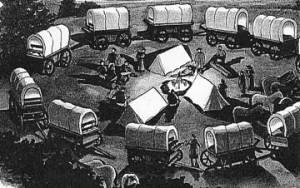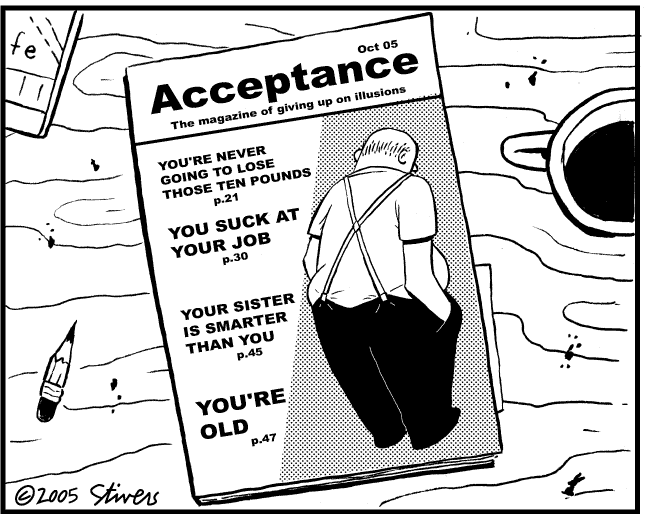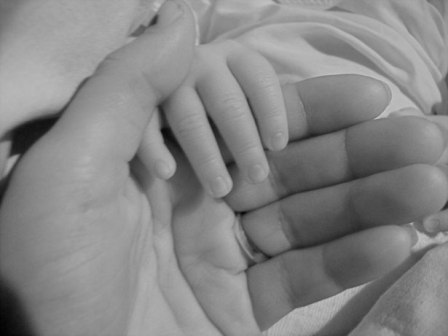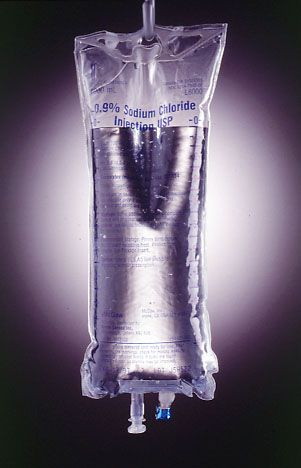
The Sphinx is here today to help me contemplate the great mystery of my Denial.
By all rights, I shouldn’t have any denial left. I was first diagnosed with RA two and a half years ago. I went through the usual stages of grief – several times, actually. I’ve been active on RA discussion boards since my diagnosis. I talk about RA, read about RA, learn everything I can about RA. Hey, I even have a BLOG about RA.
Nonetheless…
Last week my physical therapist suggested that I start wearing flexible wrist braces and a cervical collar when I play the piano. I looked at him as if he were crazy. “Is that really necessary?” He said that he thought it was. I explained to him that I already have a collection of unused braces, supports, etc. in a box under my bathroom sink from a variety of past injuries. He asked if any of them are the kind he is recommending. (They are not.) I then explained that I had always thought that it wasn’t good to use things like that for too long because the body becomes dependent on them. He pointed out the difference between recovering from an injury and accommodating a chronic condition. I further explained that I couldn’t possibly wear braces and a collar to work – I have been working hard to keep my RA a secret from people at my workplaces. He said that he understood that, and that I would still benefit from wearing them during my at-home practice. I struggled to come up with other reasons why I shouldn’t or couldn’t wear them.
Then he said, very gently, “Sometimes people with very driven personalities have the hardest time accepting that there are things they really can’t do anymore.”
And that was when I came face-to-face with Denial.
I started physical therapy about a month ago because I was experiencing headaches, a sore neck, and sore wrists and forearms after playing the piano. Sometimes one of my hands turns cold and pale in the middle of playing. Still, I chose to believe that this had nothing to do with the RA. My rheumatologist recently increased my Remicade, and my bloodwork is looking great, so on paper, the RA is under control. I am still exhausted and running fevers in the late afternoon, but I stubbornly chose to believe what was on paper. This was made easier by the fact that my recent symptoms are all muscle-based, not joint-based. My joints are actually doing okay – no visible swelling or pain.
My physical therapist, however, persists in treating me as an RA patient. He explains that my muscles are most likely tight and sore because they are overcompensating for underlying joint instability. He agrees that the joints don’t seem to be in a current flare, but doesn’t think that changes the basic problem. He also points out that as the weeks pass and my Remicade begins to wear off, I get more tired, and it gets harder for me to do my PT exercises. This is a pattern I didn’t want to acknowledge, even though it’s one I’ve seen over and over.
Why am I so determined to believe that my RA is under control, and that the pains and problems I’m experiencing must have another cause? Why, after all this time, do I still feel such anger and sadness when I realize that no, I am most certainly not in remission? Isn’t this something I already know? How many times will I cycle through the stages of grief before I reach Acceptance?
I did a foolish thing – I committed to several performances this month. Even though I was already experiencing the headaches and wrist pains, my pride just couldn’t handle saying “no” when I was asked – I perform less and less all the time, and grabbed on to this chance to feel like I still have a performing career. This week, I have two long rehearsals and then performances on Friday and Sunday. I did this knowing that my Remicade infusion is scheduled for NEXT week, and that the week before my infusion is always the worst. I chose to believe that because we increased my dosage and moved the infusions closer together, this time would be different. This was a huge leap of faith, and, as it turns out, a misguided one. Last night I ran through the program and was in such terrible pain by the end that I wanted to cry. There is no backing out at this point, because I am performing with others who are depending on me to be there.
This is not the first time I’ve committed to performances and then regretted it. I’ve always been able to get through them, but suffered in the process. Each time I tell myself that I need to learn the lesson, but so far, it hasn’t gotten through. My fear is that one of these times, my luck will run out, and I’ll end up having to cancel, or that I’ll be suddenly unable to play in the middle of a performance. These things would be career-enders. And I would very much prefer to end my career on my own terms, by choice, with my head held high. So why do I do this?
Denial.
There is a fine line between fighting for something you love and denial. I think I have crossed it this time. I believe that I can continue to play the piano, but I think it’s time to back away from high-profile, high-pressure performances. And I also think it’s time to accept that if I want to keep playing, the wrist braces and cervical collar might not be such a bad idea. I would like to stop seeing them as admissions of failure and instead start seeing them as helpful tools, even friends.
For now, I will grit my teeth and struggle through the next several weeks. I hope that next time I am asked to do something like this, I will be able to look back on this post and remember.








